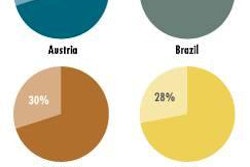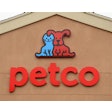A ballot initiative to require many foods and beverages that contain genetically modified ingredients sold in the state of Washington to carry labels failed to pass during November 5 elections, with 55% of voters opposed to the measure. Though earlier news reports claimed petfood was being used as an example by both supporters and opponents of the initiative, petfood-related debates seemed to fade down the stretch, replaced by arguments over cost, health benefits and labeling of human foods. And unlike with a similar proposed law in California last year that was also defeated, petfood industry organizations appeared not to engage in the Washington battle with either words or money.
However, the Washington initiative, known as I-522, had many similarities with the California one, known as Prop 37. For starters -- and perhaps the most significant factor -- both initiatives attracted large sums of money, mostly in opposition, from outside their respective states. Prop 37 opponents threw more than US$44 million into fighting it, with much of that money coming from not only large food companies like Monsanto and Hershey (both based in other states) but also national farming associations, grocers associations and pet industry organizations such as the Pet Food Institute (PFI) and Pet Industry Joint Advisory Council (PIJAC). In contrast, supporters of Prop 37 raised only US$9.2 million.
I-522 set a record for spending on ballot measures in Washington state, according to the Spokesman-Review, with agrichemical and food processing companies from around the country, such as Monsanto, contributing more than US$33 million to the "no" campaign. Another large opposing contributor was the Grocery Manufacturers Association (GMA). The "yes" campaign received more than US$9 million, also from many out-of-state contributors. One of the largest, Dr. Bronner's Magic Soaps, is based in California, interestingly.
Another similarity between the two initiatives was that opponents of both argued -- successfully -- that the measures were poorly worded and would drive up the cost of food in the respective states. While that latter argument is likely what won over most voters, the one about poor wording included confusion over whether petfood would be affected. In California, there seemed to be a clear concern indicated, which is what spurred PFI and PIJAC to get involved. But in Washington, though ads earlier in the year revolved around petfood (with opposing ads saying "food for Rover" would have to be labeled while meat for humans would not, and supporting ads arguing just the opposite), the petfood implications seemed to hold much less sway, if any, in the last weeks and days leading to the election.
Despite this latest outcome, as most parties involved with Prop 37 said last year, the issue is not going away. “Win or lose, this is a long war,” said David Bronner, CEO of Dr. Bronner’s Magic Soaps (quoted in a Seattle Times article). “Labeling is inevitable.” Indeed, anti-GMO groups are planning a ballot initiative in Oregon in 2014; and similar laws have been passed in recent years in Connecticut and Maine but are written to not take effect unless surrounding states agree.
Outside the US, at least 50 countries have laws prohibiting the use of GMOs or requiring that products that contain GMOs be labeled. That obviously has significant implications for US-based food and petfood manufacturers looking to export their products.
And if even one state within the US passes a GMO labeling law that goes into effect, nearly all food and petfood manufacturers selling anywhere in the country would be affected: While such a law would theoretically apply only to products sold in that state, on a practical level most companies would have to revise labeling (or reformulate products using more costly and less available ingredients) for all states in the US, said David Dzanis, DVM, PhD, DACVN, and author of the "Petfood Insights" column. That's because it would be too difficult, logistically and financially, to formulate or label products to be sold in one state differently from products sold elsewhere in the US.
Perhaps as a preemptive strike, GMA established an online portal, Facts About GMOs, in September to explain its stance. Conversely, petfood companies like WellPet, through its Wellness brand, have claimed to remove all GMOs from their dry petfood formulas. Where do you suppose all of this will lead?
















